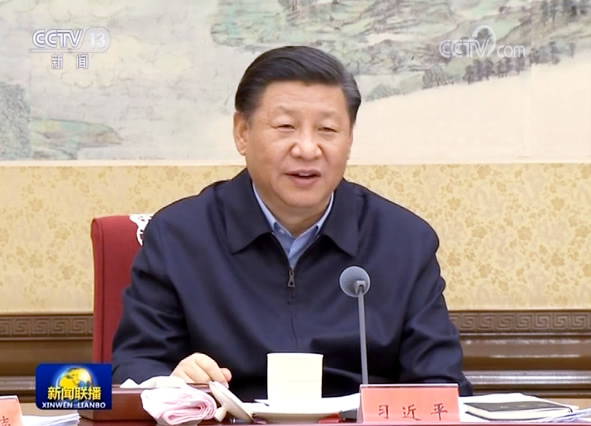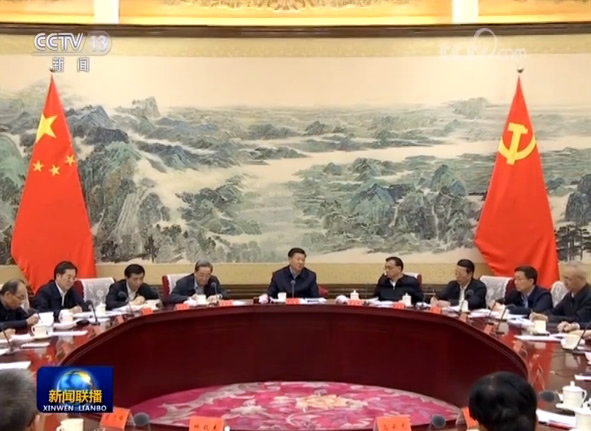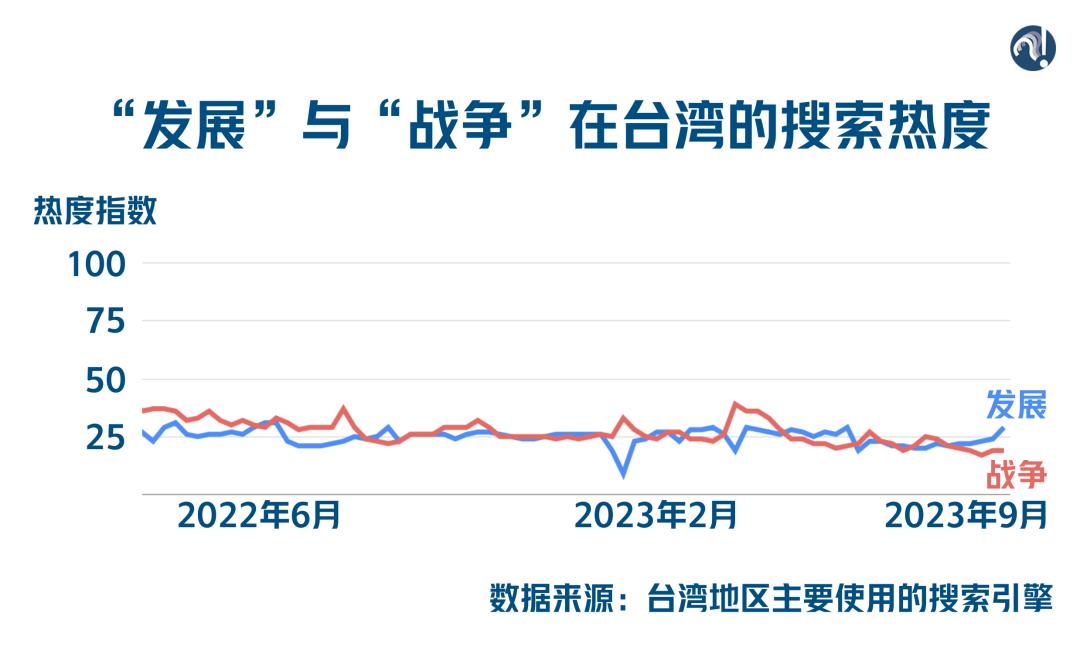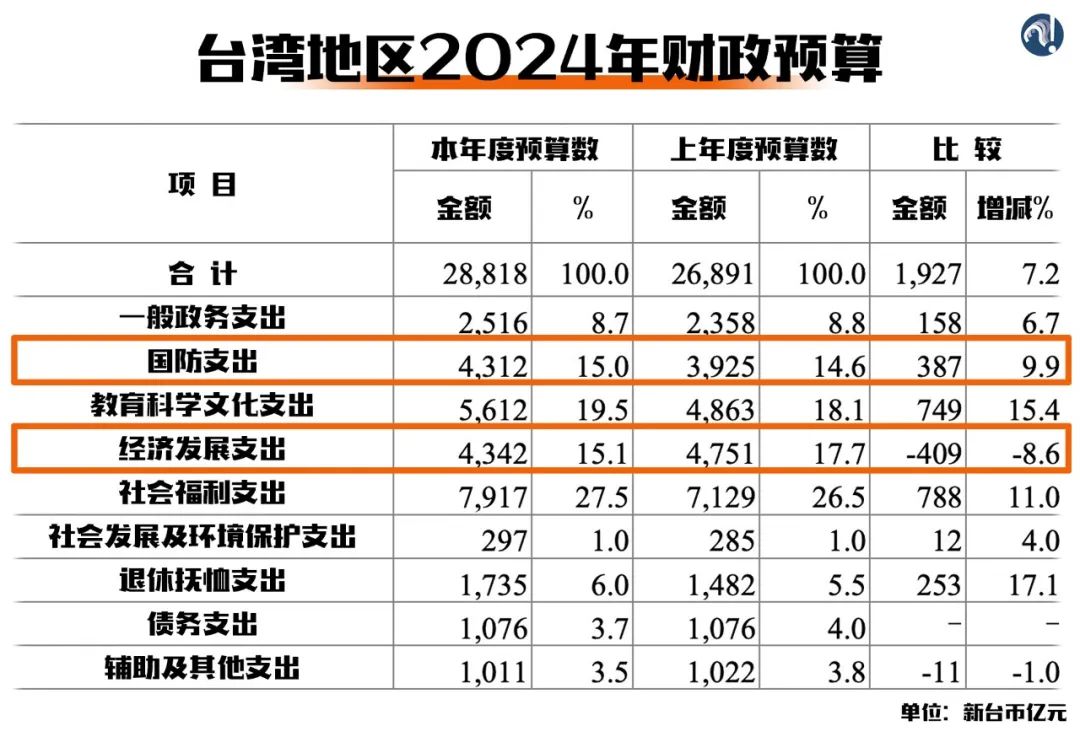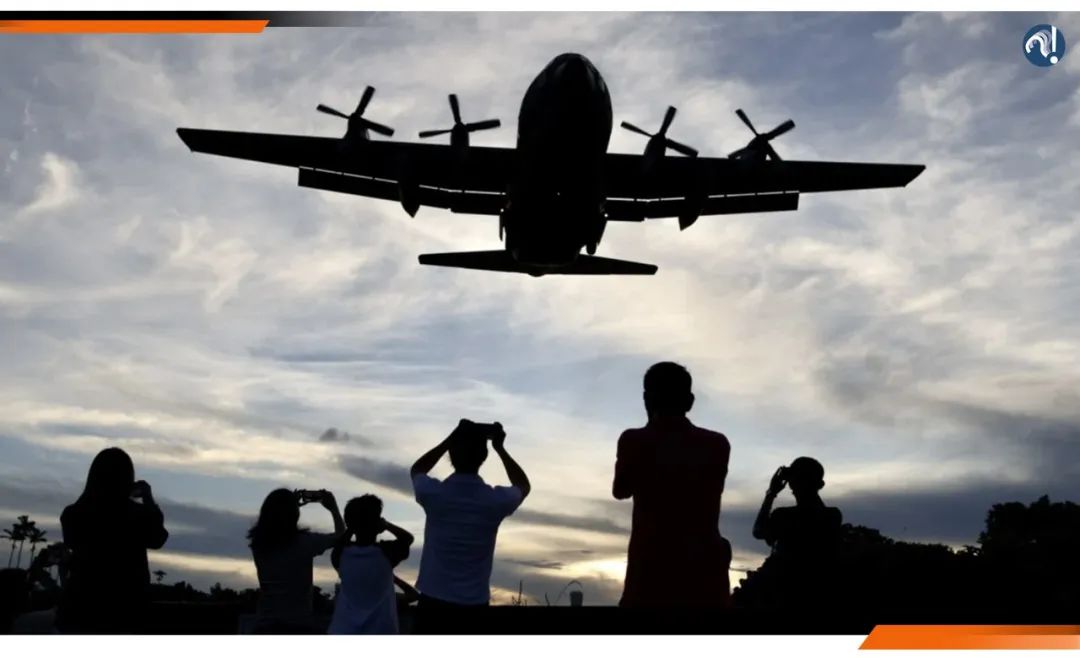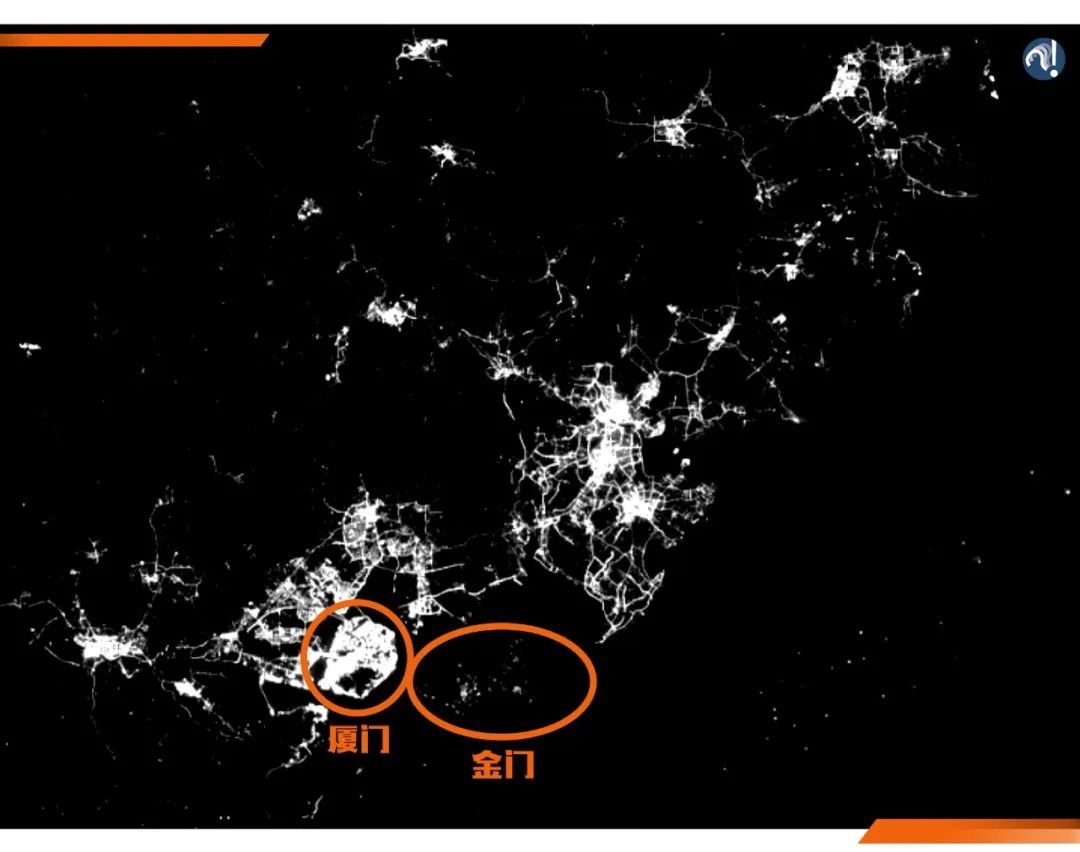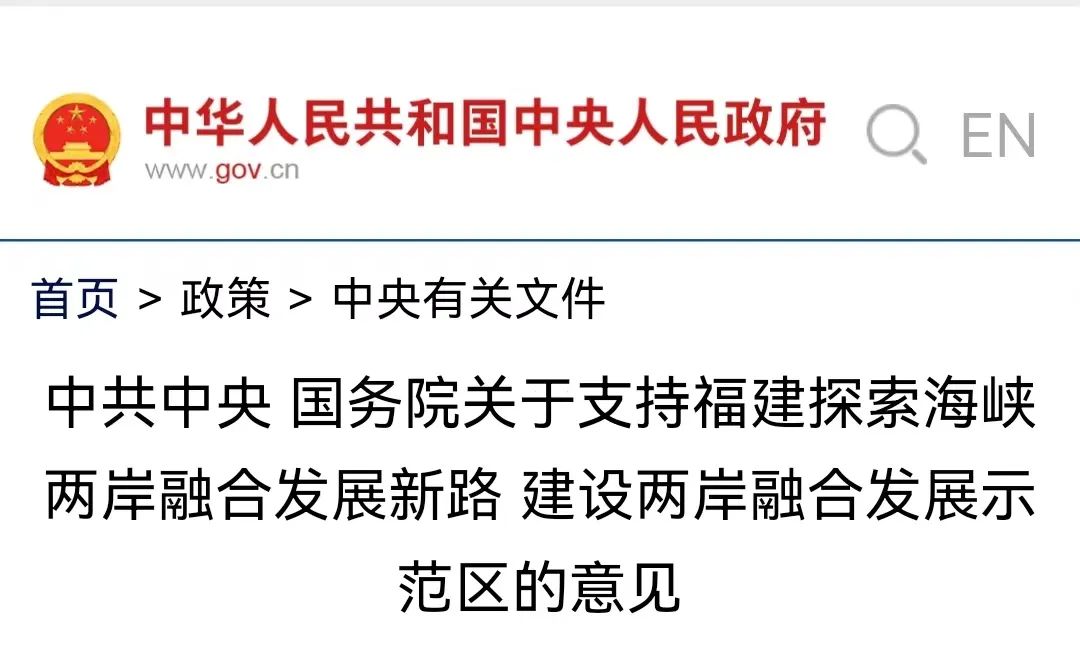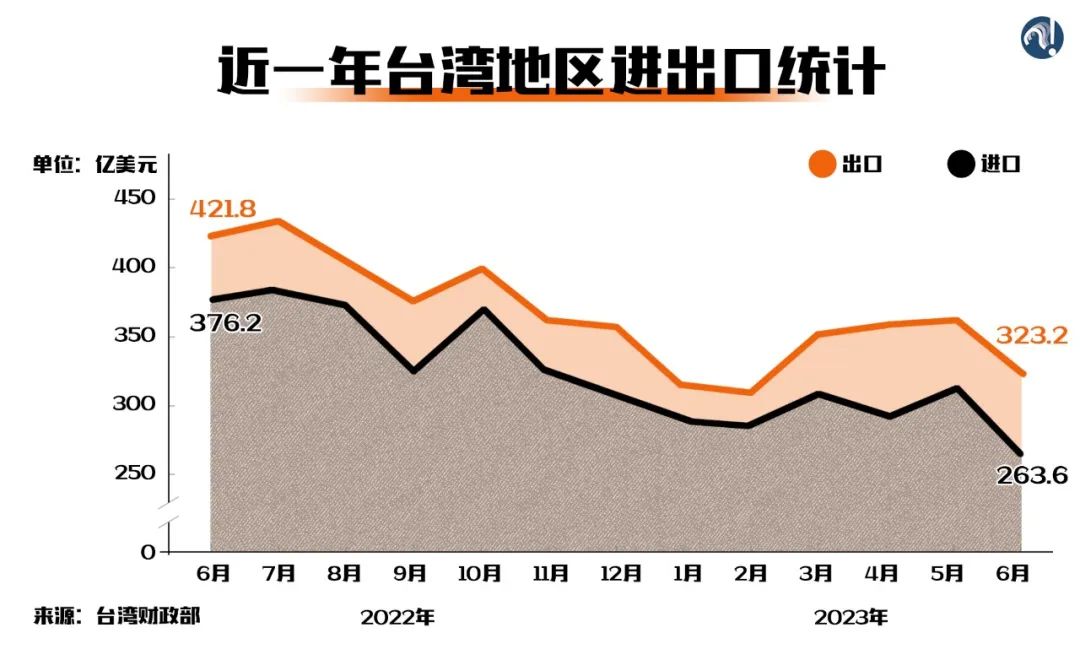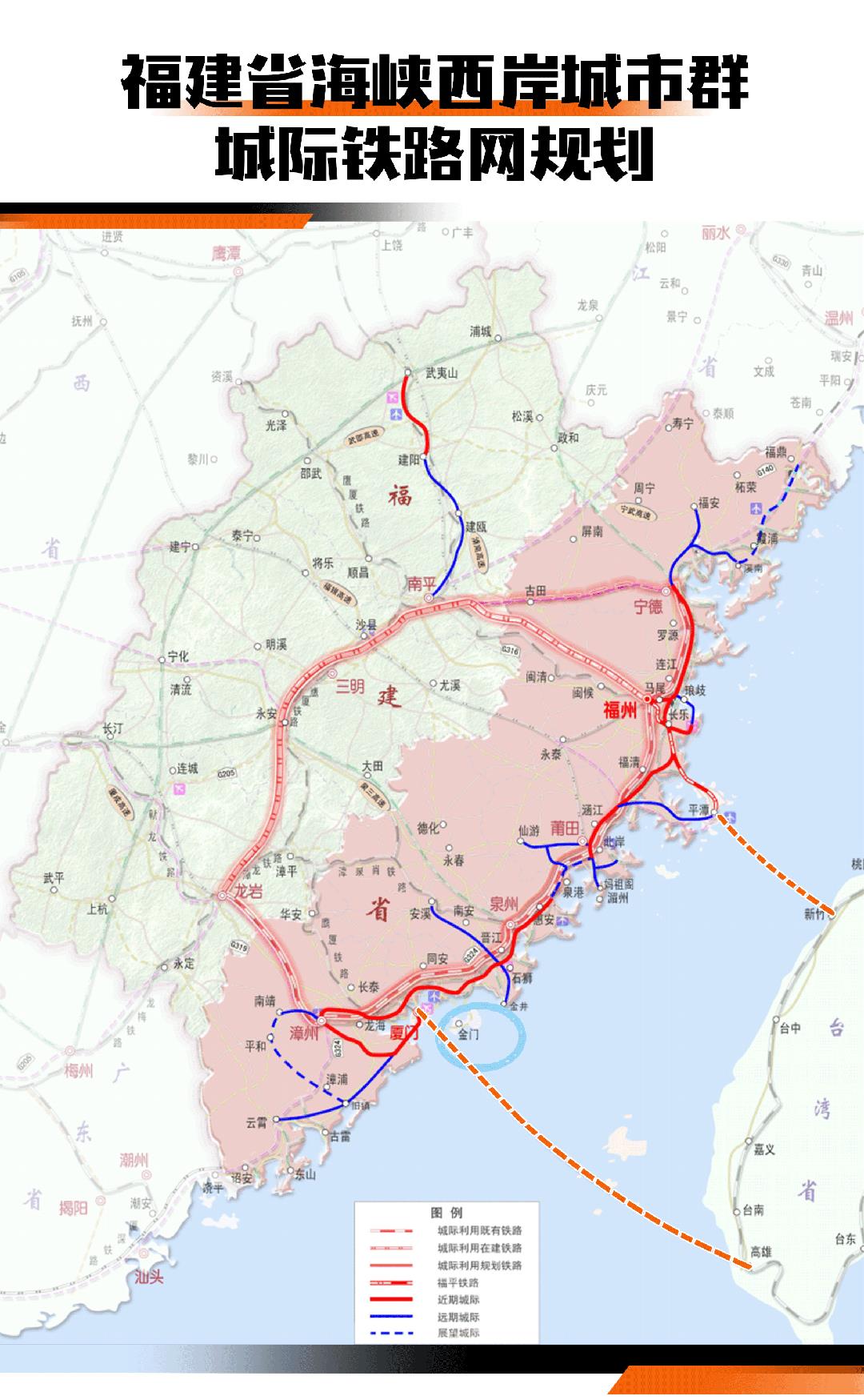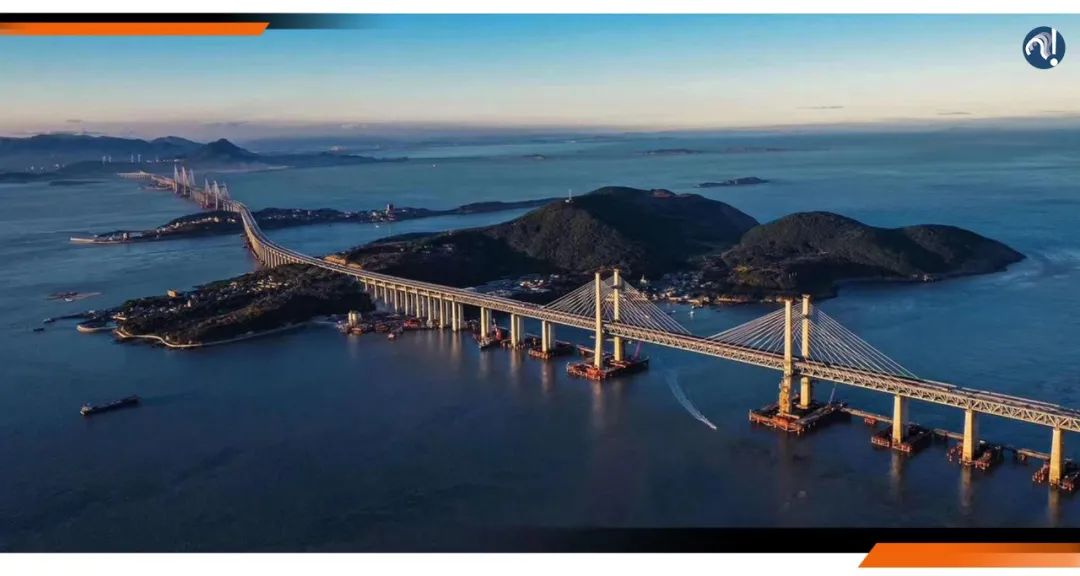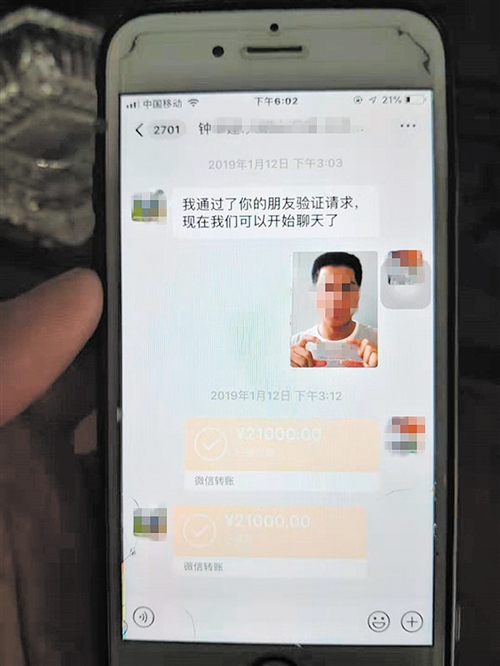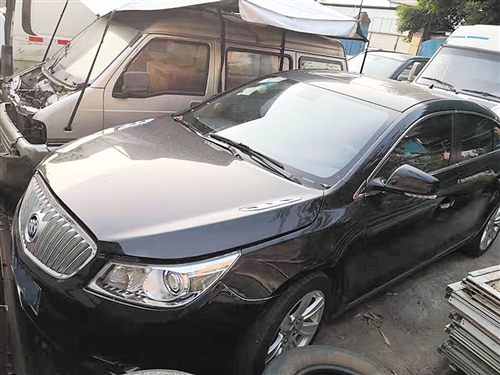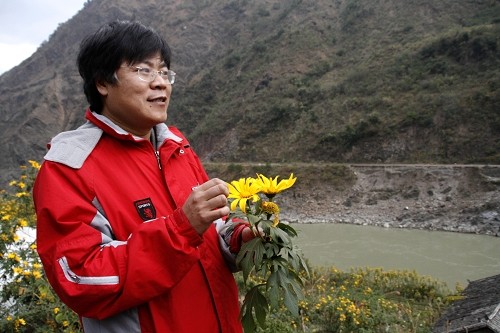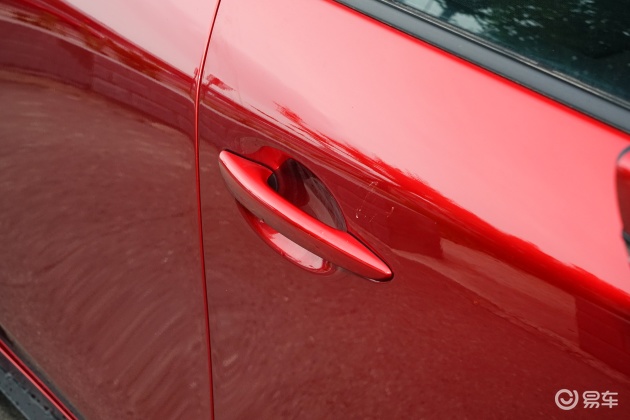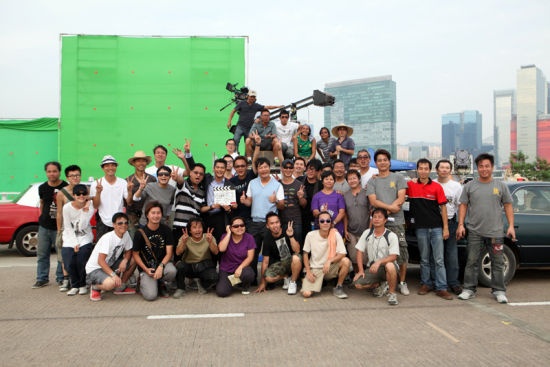General Office of Hunan Provincial People’s Government
Notice on Issuing the Measures for Publicity of Administrative Law Enforcement in Hunan Province, the Measures for Recording the Whole Process of Administrative Law Enforcement in Hunan Province and the Measures for Legal Review of Major Administrative Law Enforcement Decisions in Hunan Province
Xiang Zheng Ban Fa [2019] No.53
The people’s governments of cities, counties and cities, the provincial government departments and commissions, and the directly affiliated institutions:
The measures for publicity of administrative law enforcement in Hunan Province, the measures for recording the whole process of administrative law enforcement in Hunan Province and the measures for legal review of major administrative law enforcement decisions in Hunan Province have been agreed by the provincial people’s government and are hereby printed and distributed to you, please earnestly organize their implementation.
General Office of Hunan Provincial People’s Government
October 14, 2019
(This piece is made public voluntarily)
Measures of Hunan Province on Publicity of Administrative Law Enforcement
Chapter I General Principles
the first
In order to enhance the transparency of administrative law enforcement, standardize and supervise administrative law enforcement actions, and ensure citizens, legal persons and other organizations to obtain administrative law enforcement information according to law, according to the Administrative Punishment Law of the People’s Republic of China, the Administrative Licensing Law of People’s Republic of China (PRC), the Regulations on the Openness of Government Information of People’s Republic of China (PRC), the Guiding Opinions of the General Office of the State Council on Comprehensively Implementing the System of Recording the Whole Law Enforcement Process of Administrative Law Enforcement, and the Legal Review System of Major Law Enforcement Decisions (Guo Ban Fa [2018] No.118) and the Administrative Procedure Regulations of Hunan Province,
the second
The term "administrative law enforcement" as mentioned in these Measures refers to the administrative acts of administrative organs and organizations authorized by laws and regulations (hereinafter referred to as administrative law enforcement organs) that affect the rights and obligations of citizens, legal persons and other organizations by implementing administrative licensing, administrative punishment, administrative coercion, administrative expropriation, administrative inspection and administrative confirmation according to law.
Article
The term "publicity of administrative law enforcement" as mentioned in these Measures refers to the activities of administrative law enforcement organs to disclose the relevant information of administrative law enforcement to the parties and the society on their own initiative through certain carriers and methods before, during and after administrative law enforcement.
In accordance with the application for the disclosure of administrative law enforcement information, it shall be handled in accordance with the relevant provisions of the Regulations of People’s Republic of China (PRC) Municipality on the Openness of Government Information.
Article 4 The administrative law enforcement organs shall, when disclosing administrative law enforcement information, adhere to the principles of fairness, fairness, legality, timeliness and convenience, with publicity as the norm and non-disclosure as the exception.
Fifth people’s governments at or above the county level shall uniformly lead the publicity work of administrative law enforcement in their respective administrative areas.
The competent departments of the people’s governments at or above the county level and the administrative law enforcement organs at all levels shall be responsible for organizing, coordinating and promoting the publicity of administrative law enforcement as an important part of the government’s and the department’s openness in government affairs, and do a good job in daily guidance, supervision and inspection.
The judicial administrative departments of the people’s governments at or above the county level and the administrative law enforcement organs at higher levels shall be responsible for guiding the implementation of administrative law enforcement publicity in their own administrative areas and systems, and cooperating with relevant departments to do a good job in supervision and inspection.
Article 6
Administrative law enforcement organs at all levels should establish and improve the working mechanism and management system of administrative law enforcement publicity in accordance with the principle of "who enforces the law and who is responsible for publicity", and clarify the responsibilities of collection, transmission, review, release and management of administrative law enforcement publicity content.
Article 7
The provincial people’s government shall establish and improve the unified comprehensive management and supervision information system of administrative law enforcement in the whole province, and gradually realize online entry of relevant law enforcement information, online circulation of law enforcement procedures, online supervision of law enforcement activities, real-time push of law enforcement decisions, online inquiry of law enforcement information and unified publicity of law enforcement information.
The portal websites of the people’s governments at or above the county level and their administrative law enforcement organs and the unified administrative law enforcement comprehensive management and supervision information system of the whole province are the unified administrative law enforcement information publicity platforms of the administrative regions and departments. The administrative law enforcement information publicity platform that has been built by the relevant departments should be connected with the unified administrative law enforcement information publicity platform to realize interconnection.
In addition to the administrative law enforcement information only presented to the administrative counterpart according to the relevant provisions, all other administrative law enforcement information that should be disclosed to the public should be published on a unified administrative law enforcement information publicity platform.
Chapter II Prior Publicity of Administrative Law Enforcement
Article 8
Administrative law enforcement organs should take the initiative to disclose the following administrative law enforcement information that involves public interests, needs to be widely known by the public or needs public participation, and reflects their functions, institutional settings, procedures, etc. in advance on a unified administrative law enforcement information publicity platform:
(a) the information of the administrative law enforcement subject and the administrative law enforcement personnel, including the name, function, office address and contact information of the administrative law enforcement subject and the name, work unit, law enforcement field and law enforcement certificate number of the administrative law enforcement personnel;
(2) Information on administrative law enforcement matters and basis (i.e. power list), including specific administrative law enforcement matters such as administrative punishment, administrative license, administrative compulsion, administrative inspection, administrative expropriation and administrative confirmation undertaken by administrative law enforcement organs according to law and the laws, regulations and rules on which they are based;
(3) Information on administrative law enforcement procedures, including the steps, methods, time limits and various administrative law enforcement flowcharts to be followed in implementing administrative law enforcement;
(4) Information on the ways of rights relief and supervision, including the rights enjoyed by the parties to apply for administrative reconsideration and bring administrative proceedings according to law, and the ways and means of reporting and complaining about administrative law enforcement activities;
(five) other administrative law enforcement information that should be disclosed in advance in accordance with laws, regulations and rules.
The list information in Item (2) of the preceding paragraph shall be made public after the legal institution of the administrative law enforcement organ conducts the legality review; The administrative law enforcement organs with the power of administrative inspection shall also formulate and make public a list of random inspection items in accordance with relevant requirements.
Article 9
Administrative law enforcement organs in the service hall, government affairs center and other office places to provide services, it should be set up according to the requirements of standardized information bulletin board, express the job responsibilities of staff, demonstration text of application materials, progress inquiry, consulting services, complaints and reports and other information.
The administrative law enforcement organ shall prepare a service guide for administrative law enforcement matters such as administrative licensing, administrative expropriation and administrative confirmation, and make it public in a way that is convenient for the public to know, such as public signs in the service hall and service windows, so as to facilitate the masses to handle affairs.
The judicial administrative department of the tenth provincial people’s government shall take the initiative to disclose the relevant information of the administrative law enforcement personnel in the province, and provide inquiry services and accept social supervision.
Eleventh administrative law enforcement organs shall, in accordance with the laws, regulations, rules and changes in institutional functions, timely and dynamically adjust the scope of administrative law enforcement in advance.
Chapter III Publicity in Administrative Law Enforcement
Twelfth administrative law enforcement personnel in the implementation of supervision and inspection, investigation and evidence collection, enforcement measures and enforcement, law enforcement documents and other law enforcement activities, must take the initiative to show their identity and produce administrative law enforcement certificates.
In accordance with the relevant provisions of the state, law enforcement clothing and law enforcement signs are unified, and when implementing administrative law enforcement, they should dress and wear signs in accordance with the regulations.
Article 13
Administrative law enforcement personnel shall issue administrative law enforcement documents in the process of administrative law enforcement, and inform the parties and interested parties of relevant law enforcement facts, reasons, basis, legal rights and obligations in a timely manner according to law.
In case of emergency, oral and other means may be adopted, except that written notification is required by laws, regulations and rules.
Chapter IV Publicity of Administrative Law Enforcement Afterwards
Fourteenth administrative law enforcement after the public, refers to the disclosure of the relevant information of the administrative law enforcement decision.
In addition to the provisions of article sixteenth of these measures, the information of administrative law enforcement decisions shall be disclosed in full.
Article 15
Except as otherwise provided by laws and administrative regulations, the administrative law enforcement organ shall, within 7 working days from the date of making the decision on administrative license and administrative punishment, and within 20 working days from the date of making other administrative law enforcement decisions, announce the relevant information of the administrative law enforcement decision to the public on the unified administrative law enforcement information publicity platform and accept social supervision.
The time limit specified in the preceding paragraph shall be calculated from the day after the date specified in the administrative law enforcement decision.
Sixteenth administrative law enforcement decisions in any of the following circumstances, shall not be made public:
(a) the parties are minors;
(two) involving state secrets, and may endanger national security, public safety, economic security and social stability after disclosure;
(three) involving business secrets, personal privacy and publicity will cause damage to the legitimate rights and interests of third parties;
(four) other circumstances that are not allowed to be disclosed by laws, regulations and rules.
Involving commercial secrets, personal privacy and information of administrative law enforcement decisions that will cause damage to the legitimate rights and interests of third parties after disclosure, the obligee agrees to disclose it or it is really necessary to disclose it according to law, and the administrative law enforcement organ shall make appropriate treatment of the administrative law enforcement decisions before making them public.
Article 17
When the administrative law enforcement organ makes public the administrative law enforcement decision, it shall specify the publicity period. Among them, the administrative licensing decision should generally be publicized for a long time within the validity period; The time for keeping the written decision of administrative punishment and the results of administrative inspection on the information publicity platform of administrative law enforcement is generally not less than one year. Unless otherwise provided by laws, regulations and rules, such provisions shall prevail.
If the published administrative law enforcement decision is revoked according to law, confirmed to be illegal or required to be re-made, the administrative law enforcement organ shall withdraw the original administrative law enforcement decision within 5 working days from the date of the above-mentioned situation.
Article 18
The administrative law enforcement organ shall, before January 31 of each year, make public the overall situation and relevant data of the annual administrative law enforcement in the unified administrative law enforcement information publicity platform, and submit them to the judicial administrative department of the people’s government at the same level and the higher competent department.
Chapter V Supervision and Inspection
Nineteenth people’s governments at or above the county level shall strengthen the leadership of the administrative law enforcement publicity work in this administrative region, and incorporate its implementation into the important content of the assessment of the construction of a government ruled by law.
Article 20
The competent department of the people’s government at or above the county level responsible for the publicity of government affairs and the administrative law enforcement organs at higher levels shall guide, supervise and inspect the publicity of administrative law enforcement in their respective administrative areas and systems, and urge the administrative law enforcement organs to make rectification if they fail to carry out the publicity of administrative law enforcement in accordance with the provisions; If the circumstances are serious, give it to informed criticism. If it is necessary to investigate the responsibility of the responsible leaders and the directly responsible personnel, it shall put forward suggestions to the competent authorities according to law.
Article 21
If the administrative law enforcement organ finds that its public information on administrative law enforcement is inaccurate, it shall promptly correct it. A citizen, a legal person or any other organization that the information on administrative law enforcement disclosed by the administrative law enforcement organ is inaccurate or fails to disclose the relevant information on administrative law enforcement in accordance with the provisions may request the administrative law enforcement organ to make corrections, and may submit it to the competent department of the people’s government at the corresponding level responsible for the openness of government affairs or the administrative law enforcement organ at a higher level. The competent department in charge of the publicity of government affairs or the administrative law enforcement organ at a higher level shall supervise and urge the rectification; If the circumstances are serious, give it to informed criticism.
Chapter VI Supplementary Provisions
Twenty-second laws, regulations and rules shall be implemented by the people’s governments at or above the county level, and the publicity of administrative law enforcement shall be the responsibility of the administrative law enforcement organs that specifically undertake administrative law enforcement matters.
Twenty-third organizations entrusted with administrative law enforcement duties according to law to carry out administrative law enforcement publicity activities, the application of this approach.
Article 24 These Measures shall come into force as of the date of promulgation.
Measures of Hunan Province for Recording the Whole Process of Administrative Law Enforcement
Chapter I General Principles
the first
In order to strengthen the recording, preservation, management and use of information on the whole process of administrative law enforcement, further standardize and supervise the administrative law enforcement behavior, and safeguard the legitimate rights and interests of citizens, legal persons and other organizations, according to the Administrative Punishment Law of the People’s Republic of China, the Administrative Licensing Law of People’s Republic of China (PRC), the Administrative Enforcement Law of the People’s Republic of China, and the Guiding Opinions of the General Office of the State Council on the Legal Review System for the Full Implementation of the Recording System of the Whole Process of Administrative Law Enforcement (Guo Ban Fa [2018] 18
the second
The term "administrative law enforcement" as mentioned in these Measures refers to the administrative acts of administrative organs and organizations authorized by laws and regulations (hereinafter referred to as administrative law enforcement organs) that affect the rights and obligations of citizens, legal persons and other organizations by implementing administrative licensing, administrative punishment, administrative coercion, administrative expropriation, administrative inspection and administrative confirmation according to law.
Article
The term "record of the whole process of administrative law enforcement" as mentioned in these Measures refers to the activities of recording and preserving the whole process of administrative law enforcement, such as initiation, investigation and evidence collection, examination and decision, delivery and execution, through written, audio-visual and other forms of records.
Written record is a way to record administrative law enforcement activities in the form of paper documents or electronic documents.
Audio-visual recording is a way to record the administrative law enforcement process in real time through tape recorders, cameras, video cameras, law enforcement recorders, video surveillance and other recording equipment.
Article 4
The administrative law enforcement organ shall make a written record of the whole process of administrative law enforcement. According to the relevant provisions of the state and the provisions of these measures, the law enforcement process of audio-visual recording must be carried out, and the administrative law enforcement organ shall carry out audio-visual recording in accordance with the provisions.
Article 5 Records of the whole process of administrative law enforcement shall adhere to the principles of legality, objectivity, comprehensiveness, timeliness and traceability.
Article 6 The people’s governments at or above the county level shall uniformly lead the work of recording the whole process of administrative law enforcement within their respective administrative areas.
The judicial administrative departments of the people’s governments at or above the county level and the administrative law enforcement organs at higher levels shall be responsible for the guidance, supervision and inspection of the whole process of administrative law enforcement in their respective administrative areas and systems.
Article 7
The relevant competent departments at the provincial level shall, jointly with the financial department, formulate the law enforcement equipment standards, equipment planning, facilities construction planning and annual implementation plan of the administrative law enforcement organs at all levels of the system according to the relevant requirements of the state, and submit them to the provincial people’s government for approval before implementation.
The administrative law enforcement organ shall, according to the law enforcement equipment standards, equipment planning, facilities construction planning and annual implementation plan formulated by the provincial competent department, formulate specific implementation plans and report them to the people’s government at the same level for approval before implementation.
Article 8
Administrative law enforcement organs should strengthen the informatization construction of administrative law enforcement, establish and improve the working mechanism of data recording of the whole process of administrative law enforcement based on the Internet, electronic authentication and electronic signature, and continuously improve the informatization and standardization level of administrative law enforcement.
Chapter II Records of Program Start-up Stage
Article 9
When an administrative law enforcement organ initiates administrative law enforcement procedures such as administrative license and administrative confirmation based on the application of a citizen, legal person or other organization, it shall record the application, registration, acceptance or rejection, and request the applicant to correct and supplement the application materials. The forms of records include an application form, a registration form, a written certificate of acceptance or rejection, and a notice requesting the applicant to correct or supplement the application materials.
The administrative law enforcement organ may install a video surveillance system at the place where the application is received, and record the registration, acceptance and handling process in real time.
Article 10
Where an administrative law enforcement organ initiates administrative punishment, administrative enforcement and other administrative law enforcement procedures ex officio, the administrative law enforcement personnel shall fill in the procedure initiation approval form, and record the reasons for starting, the source of the case, the basic situation of the parties, the basic case, the opinions of the contractor or the contractor, and the opinions of the person in charge of the administrative law enforcement organ for examination and approval.
Article 11
If the administrative law enforcement organ starts the administrative collection procedure according to law, it shall record the starting reasons, legal conditions, examination and approval opinions of relevant departments, etc. The ways of recording include the certification materials that meet the needs of public interests, the certification materials that meet various plans and plans, and the approval opinions of the competent authorities that agree to start the collection.
Twelfth administrative law enforcement organs in accordance with the requirements of "double random, one open" to start the administrative inspection procedures, it should be randomly selected inspection objects, randomly selected law enforcement inspectors and sampling methods and other content records.
Chapter III Records of Investigation and Evidence Obtaining Stage
Thirteenth administrative law enforcement organs shall make corresponding administrative law enforcement documents and record the following situations in the process of investigation and evidence collection (review and verification):
(a) the name of the administrative law enforcement personnel, the number of the law enforcement certificate, and the situation of showing the law enforcement certificate and showing the law enforcement identity;
(2) Asking about the parties and witnesses;
(three) on-site inspection (investigation, inspection);
(four) the collection of documentary evidence, physical evidence and other evidence;
(5) Sampling for evidence collection and entrusting a third party to conduct inspection, testing, quarantine, appraisal, expert argumentation or review and evaluation;
(6) Informing the parties about their rights to make statements, defend themselves, apply for withdrawal, apply for a hearing, etc. according to law, and about their statements, defend themselves and apply for withdrawal;
(seven) hearing, listen to the opinions of the parties or the public;
(8) Other relevant information.
Article 14
If the administrative law enforcement organ implements administrative law enforcement according to the application, it shall review the application materials after accepting it; According to the legal conditions and procedures, if it is necessary to verify the substantive contents of the application materials, it shall be verified by two or more administrative law enforcement personnel, and the corresponding examination or verification conclusion documents shall be made.
In accordance with the law, if it should be reviewed by the administrative law enforcement organ at a lower level and then reported to the administrative law enforcement organ at a higher level for decision, the administrative law enforcement organ at a lower level shall submit the preliminary examination opinions and all application materials to the administrative law enforcement organ at a higher level within the statutory time limit, and the administrative law enforcement organ at a higher level shall file them for preservation.
Article 15
If the administrative law enforcement organs carry out administrative law enforcement according to their functions and powers, and the evidence may be lost or difficult to obtain later, and with the approval of the person in charge of the administrative organ, they take administrative compulsory measures according to law, such as registering and preserving evidence in advance, restricting citizens’ personal freedom, sealing up places, facilities or property, seizing property, freezing deposits and remittances, etc., they shall make corresponding administrative law enforcement documents to record the relevant situation, and at the same time make audio-visual records of the whole process.
Article 16 The administrative law enforcement organs shall make audio-visual records of on-site inspection (investigation and inquest), sampling for evidence collection, holding hearings and other controversial investigation and evidence collection processes.
Seventeenth administrative law enforcement organs to record the investigation and evidence collection process, should focus on the following contents:
(a) law enforcement site environment, law enforcement places;
(two) the physical characteristics, words and deeds of administrative law enforcement personnel, parties, witnesses and other relevant personnel on the spot;
(3) Relevant evidence such as important articles involved and their main features;
(four) the scene of the administrative law enforcement personnel to take measures against the relevant personnel and property;
(five) the service of law enforcement documents by administrative law enforcement personnel;
(six) other contents that should be recorded.
Article 18
In the process of audio-visual recording, if it is interrupted due to special circumstances, the reason for the interruption shall be explained by voice when the recording is resumed. If it is really impossible to explain the reasons in the audio-visual records due to objective reasons, the situation should be explained in writing afterwards, and the file should be attached.
Chapter IV Records of Audit Decision Stage
Article 19
After the investigation, the administrative law enforcement organ shall record the handling opinions put forward by the administrative law enforcement contractor, the proposed administrative law enforcement decision and the examination and approval opinions of the person in charge of the administrative law enforcement organ. The forms of records include handling instructions, opinions to be made, administrative law enforcement decisions (or cases) approval forms, administrative law enforcement decision documents, etc.
Twentieth administrative law enforcement decisions made by administrative law enforcement organs shall specify the following items:
(a) the basic situation of the parties;
(2) Facts and evidence to prove them;
(3) Applicable legal norms;
(4) the contents of the decision;
(five) the way and time of performance;
(six) the way and time limit of relief;
(seven) the seal and date of the administrative organ;
(eight) other matters that should be specified.
The administrative law enforcement decision document shall be produced; Where summary procedures are applicable, formatted documents may be used.
Article 21
If a major administrative law enforcement decision has been demonstrated or reviewed by experts, the situation of expert demonstration or review shall be recorded. The forms of records include expert argumentation or review opinions, meeting minutes and sign-in forms, etc.
Twenty-second major administrative law enforcement decisions have been audited by the legal system, and the relevant information of the legal system audit shall be recorded. The record is in the form of legal audit opinions.
Article 23
If a major administrative law enforcement decision is decided by the person in charge of the administrative law enforcement organ through collective discussion, the opinions and decisions of the collective discussion shall be recorded. The form of the record is the minutes and minutes of the meeting that comprehensively record the opinions of the responsible persons of the administrative law enforcement organs.
Chapter V Records of Delivery and Execution Stage
Article 24
If the administrative law enforcement organ directly serves the administrative law enforcement documents, it shall make a receipt of service, and record the name, time and place of service, the addressee, the addressee or the signatory who meets the legal conditions and the receipt on the receipt of service.
Article 25
Administrative law enforcement organs take lien to serve administrative law enforcement documents, it shall record the reasons and date of lien service, witnesses, delivery, etc. on the service receipt, and at the same time take audio-visual recording to record the service process.
Article 26
When an administrative law enforcement organ serves an administrative law enforcement document by mail, it shall use a registered postal letter or express mail, indicate the name and document number of the administrative law enforcement document served on the mailing list, and keep the voucher and receipt for mailing.
Twenty-seventh administrative law enforcement organs to entrust, transfer and other ways to serve administrative law enforcement documents, it should be in the service receipt to record the reasons for the entrustment or transfer, the addressee, the signatory and the signing situation.
Article 28
Where the administrative law enforcement organ serves the administrative law enforcement documents by announcement, it shall record the reasons, methods, process and date of the announcement. If an announcement is made in the media, the voucher for the announcement shall be retained; Where an announcement is posted in the relevant place, the documents of the announcement shall be retained, and the announcement process shall be recorded by audio and video.
Twenty-ninth if the parties voluntarily perform the obligations determined by the administrative law enforcement decision, the administrative law enforcement organ shall record the voluntary performance of the parties and keep the relevant documents.
Where the administrative law enforcement organ shall perform the obligations determined by the administrative law enforcement decision at the same time, it shall record the performance of the obligations by the administrative law enforcement organ and keep relevant vouchers.
Article 30
Where the administrative law enforcement organ implements administrative enforcement according to law, it shall make corresponding administrative law enforcement documents, record the situation of urging, making and serving enforcement decisions, administrative enforcement methods, etc., and make audio-visual records of the specific process of implementing administrative enforcement.
If a party or a third party makes statements, arguments or objections to administrative enforcement, the administrative law enforcement organ shall record the opinions or objections raised by the party or the third party and the handling of relevant opinions and objections by the administrative law enforcement organ.
Article 31 Where an administrative law enforcement organ applies to a people’s court for compulsory execution according to law, it shall record the demand, the application and the result of compulsory execution.
Chapter VI Management and Use of Records
Thirty-second administrative law enforcement organs shall establish and improve the management system of administrative law enforcement files, and clarify the person responsible for the preservation, use and management of administrative law enforcement records.
The administrative law enforcement organ shall, within 30 days from the end of the administrative law enforcement act, timely file and save the records of the whole process of administrative law enforcement in accordance with the relevant laws, regulations and archives management provisions, so as to ensure that all administrative law enforcement acts are well documented. Except as otherwise provided by laws, regulations and rules.
Thirty-third administrative law enforcement organs shall establish and improve the management system of administrative law enforcement audio-visual records, and clarify the requirements of equipment, use norms, recording elements, storage and application, supervision and management of administrative law enforcement audio-visual records.
Article 34
The use of audio-visual recording, administrative law enforcement personnel or recording personnel shall, within 24 hours after the completion of audio-visual recording, store the recorded information to the designated administrative law enforcement information system or special memory, and shall not keep it by themselves.
Continuous work, law enforcement in different places, or law enforcement in remote and inaccessible areas, and it is really impossible to store relevant record information in time, it shall be stored within 24 hours after returning to the unit.
Article 35
Audio-visual records used as evidence of administrative law enforcement shall be made into CD-ROM with text description, indicating the information such as production method, producer, production time and object of proof, attached to the volume or filed.
Article 36
The administrative law enforcement organ shall establish and improve the supervision system for the access to the records of the whole process of administrative law enforcement, so that it can be accessed in real time, and strengthen supervision to ensure that the written records and audio-visual records of administrative law enforcement are standardized, legal and effective.
The parties or interested parties may apply for access to the relevant information of administrative law enforcement files, except those that should be kept confidential or not made public according to law.
Chapter VII Supervision and Inspection
Thirty-seventh people’s governments at or above the county level shall strengthen the leadership of the whole process of administrative law enforcement in their respective administrative areas, and incorporate their implementation into the important content of the assessment of the construction of a government ruled by law.
The judicial administrative department of the people’s government at or above the county level and the administrative law enforcement organ at a higher level shall guide, supervise and inspect the record of the whole process of administrative law enforcement in their respective administrative areas and systems, and report the results of supervision and inspection through appropriate means.
Thirty-eighth administrative law enforcement organs and their administrative law enforcement personnel and other relevant personnel in any of the following circumstances, resulting in serious consequences, should be investigated for responsibility according to discipline and law:
(a) without justifiable reasons, not to record the whole process of administrative law enforcement or not in accordance with the provisions;
(two) unauthorized destruction, deletion, tampering with administrative law enforcement records;
(three) not according to the provisions of storage or custody, resulting in damage or loss of administrative law enforcement records;
(four) in violation of the provisions of unauthorized disclosure of administrative law enforcement records;
(five) in violation of other provisions of these measures.
Chapter VIII Supplementary Provisions
Thirty-ninth organizations entrusted with the responsibility of administrative law enforcement according to law to carry out the whole process of administrative law enforcement record activities, the application of this approach.
Fortieth these Measures shall come into force as of the date of promulgation.
Measures of Hunan Province for Legal Audit of Major Administrative Law Enforcement Decisions
the first
In order to standardize and supervise major administrative law enforcement actions, and protect the legitimate rights and interests of citizens, legal persons and other organizations, these measures are formulated in accordance with the Administrative Punishment Law of the People’s Republic of China, the Administrative Compulsory Law of the People’s Republic of China, the Guiding Opinions of the General Office of the State Council on Comprehensively Implementing the System of Publicity of Administrative Law Enforcement, the System of Recording the Whole Process of Law Enforcement, and the Legal Review System of Major Law Enforcement Decisions (Guo Ban Fa [2018] No.118) and the Provisions on Administrative Procedures of Hunan Province, combined with the actual situation of this province.
the second
The term "administrative law enforcement" as mentioned in these Measures refers to the administrative acts of administrative organs and organizations authorized by laws and regulations (hereinafter referred to as administrative law enforcement organs) that affect the rights and obligations of citizens, legal persons and other organizations by implementing administrative licensing, administrative punishment, administrative coercion, administrative expropriation, administrative inspection and administrative confirmation according to law.
Article
The term "legal review of major administrative law enforcement decisions" as mentioned in these Measures refers to the activities of the administrative law enforcement organs to review the legality and appropriateness of major administrative law enforcement decisions by the institutions responsible for legal review before making major administrative law enforcement decisions.
Article 4
Involving major public interests, may cause significant social impact or lead to social risks, directly related to the major rights and interests of the administrative counterpart or the third party, and the following major administrative law enforcement decisions with complex circumstances and involving multiple legal relationships, the administrative law enforcement organ shall conduct legal review before making a decision, and shall not make a decision without legal review or failure of the review:
(1) Administrative compulsory decision. In case of emergency, it is necessary to implement administrative compulsory measures on the spot or immediately implement administrative compulsory execution;
(two) the administrative expropriation decision;
(3) Decisions on administrative punishment, administrative license, etc. that should be heard according to law or that need to be heard by administrative law enforcement organs;
(four) according to the results of spot check, inspection, inspection, quarantine and appraisal, and according to the examination results, assessment results and other legal conditions to make administrative punishment, administrative licensing and other decisions;
(5) An administrative confirmation decision that has a significant impact on the production, operation and life of the administrative counterpart or directly affects the significant rights and interests of a third party;
(six) other major administrative law enforcement decisions that should be audited according to laws, regulations and rules.
Article 5 The administrative law enforcement organ shall, in accordance with the provisions of Article 4 of these Measures, make a list of the legal review of major administrative law enforcement decisions of the organ, announce it to the public, and report it to the judicial administrative department of the people’s government at the same level for the record.
The administrative law enforcement organ at a higher level shall strengthen the guidance for the lower administrative law enforcement organs to compile the legal review catalogue of major administrative law enforcement decisions, and clarify the legal review standards for major administrative law enforcement decisions.
Article 6
The administrative law enforcement organ shall make it clear that the organ specifically responsible for the legal review of major administrative law enforcement decisions (hereinafter referred to as the legal review organ) is equipped with personnel commensurate with the legal review task. In principle, the legal review personnel of administrative law enforcement organs at all levels shall be equipped with not less than 5% of the total number of law enforcement personnel of the unit and not less than 2 people.
The administrative law enforcement organs may employ legal advisers and public lawyers to participate in the legal audit according to the needs of their work.
Article 7
The administrative law enforcement agencies specifically responsible for law enforcement matters (hereinafter referred to as law enforcement agencies) shall, after the investigation of major administrative law enforcement actions is completed, put forward preliminary handling opinions, submit them to the legal audit institutions for review, and provide the following materials:
(1) Approval form for filing a case or starting a procedure, acceptance certificate, etc.;
(two) the measures taken for examination, verification or investigation and evidence collection and the relevant administrative law enforcement documents, which inform the parties and interested parties of their rights to make statements and defend themselves;
(3) Collecting documentary evidence, material evidence, audio-visual materials, statements of the parties, witness testimony, on-site transcripts, transcripts of inspection and other evidence materials;
(four) after hearing, expert argumentation or review and evaluation, it is necessary to provide materials for hearing, argumentation or review and evaluation;
(five) the administrative law enforcement decision to be made;
(6) Other relevant materials.
If the materials submitted by the law enforcement contractor are incomplete and do not meet the requirements, the legal audit institution may require the law enforcement contractor to supplement them within a specified time; After the supplement still does not meet the requirements, the legal audit institution may not audit and return the relevant materials.
Article 8 The contents of the legal audit of major administrative law enforcement decisions by legal audit institutions include:
(a) whether the subject of administrative law enforcement is legal, whether it exceeds the statutory authority, and whether the administrative law enforcement personnel are qualified for law enforcement;
(two) whether the administrative law enforcement procedure is legal;
(3) Whether the facts are clear and whether the evidence is legal and sufficient;
(four) whether the applicable laws, regulations and rules are accurate;
(five) whether to explain the reasons or whether the reasons are sufficient;
(six) whether the administrative law enforcement documents are complete and standardized;
(seven) whether the illegal act is suspected of a crime and needs to be transferred to judicial organs;
(eight) other contents related to the legality and appropriateness of major administrative law enforcement decisions.
Ninth legal audit institutions after the completion of the audit, it should be based on different situations, put forward the corresponding written audit opinions:
(a) the subject of administrative law enforcement is legal, the administrative law enforcement personnel are qualified for law enforcement, the facts are clear, the evidence is sufficient, the legal basis is correct, the reasons are sufficient, the procedures are legal, and the proposed handling opinions are appropriate, and the opinions of agreeing to make the administrative law enforcement decision are put forward;
(two) the subject of administrative law enforcement is illegal, law enforcement personnel do not have the qualification for law enforcement, and put forward opinions on not making administrative law enforcement decisions; Beyond the jurisdiction of the administrative law enforcement organs, put forward opinions on not making administrative law enforcement decisions and transferring them to the competent organs according to law;
(three) if the facts are unclear and the evidence is insufficient, put forward opinions on supplementary investigation or evidence; After further supplementary evidence, the facts are still unclear, and the opinions of not making administrative law enforcement decisions are put forward;
(four) in violation of legal procedures, and can not be corrected, put forward opinions on not making administrative law enforcement decisions; If there are minor flaws or omissions in the procedure, and the legitimate rights and interests of the parties are not infringed, put forward suggestions for correction;
(five) the reasons are not explained or the reasons are not sufficient, and the suggestions for correction are put forward;
(six) the administrative law enforcement documents are not standardized and incomplete, and put forward suggestions for correction;
(seven) if the illegal act is suspected of a crime, put forward the opinions of making administrative law enforcement decisions and transferring them to judicial organs according to law.
Tenth legal audit institutions shall complete the legal audit of major administrative law enforcement decisions within 7 working days after receiving the submitted materials. If the case is complicated, it may be extended for 3 working days with the approval of the person in charge of the administrative law enforcement organ.
The audit period specified in the preceding paragraph shall be counted from the day after the legal audit institution receives the complete submission materials, and the period of supplementary materials shall not be counted.
Eleventh law enforcement agencies should study the audit opinions of the existing problems put forward by the legal audit institutions, and then submit them to the legal audit again after making corresponding treatment.
Twelfth major administrative law enforcement decisions that should be submitted to the heads of administrative law enforcement organs for collective discussion and decision according to law. If the legal review fails, it shall not be submitted for collective discussion.
Article 13
The judicial administrative department of the people’s government at or above the county level and the administrative law enforcement organ at a higher level shall guide, supervise and inspect the legal review of the implementation of major administrative law enforcement decisions in their respective administrative areas and systems, and report the results of supervision and inspection through appropriate means.
Article 14
Administrative law enforcement organs in the process of implementing major administrative law enforcement acts, due to the administrative law enforcement personnel, legal auditors and the person in charge of administrative law enforcement organs intentionally or grossly negligent, under any of the following circumstances, resulting in illegal administrative law enforcement acts and harmful consequences, it shall be investigated for responsibility according to law and discipline:
(a) without legal review or audit failed to make a major administrative law enforcement decision;
(two) due to the reasons of law enforcement agencies and their administrative law enforcement personnel, the facts, evidence, legal application and procedures of administrative law enforcement are seriously illegal, or the materials submitted for legal review are untrue, inaccurate and incomplete;
(three) the legal audit institutions and their legal auditors do not put forward legal audit opinions according to the provisions or the legal audit opinions put forward are seriously wrong;
(four) there are other illegal acts.
Fifteenth major administrative law enforcement decisions made by the people’s governments at or above the county level according to laws, regulations and rules shall be audited by the judicial administrative department of the people’s governments at or above the county level according to the provisions of these measures.
Article 16 These Measures shall apply to the legal review of major administrative law enforcement decisions by organizations entrusted with administrative law enforcement duties according to law.
Article 17 These Measures shall come into force as of the date of promulgation.
